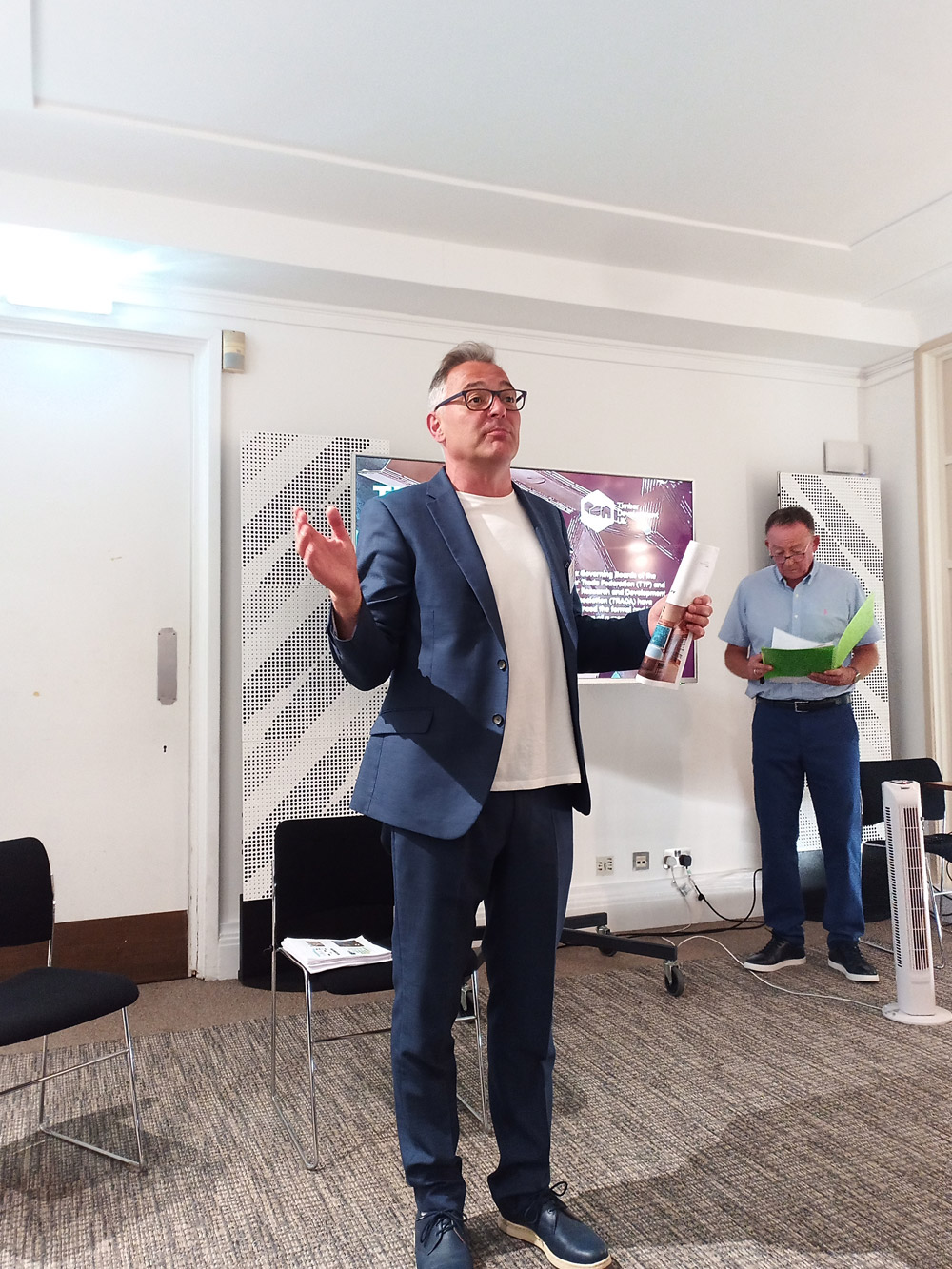Timber sector can learn from electric vehicle industry’s growth, says TDUK CEO
19 July 2022Members of Timber Development UK (TDUK) braved the high temperatures on Monday to converge on RIBA’s offices in London to hear about the organisation’s latest plans to achieve its stated objective of becoming a one-stop shop in the timber industry for information, technical guidance and training.
At TDUK’s AGM and Conference, CEO David Hopkins drew inspiration from the growth of the electric vehicle industry to paint a picture of what was possible in the timber sector.
The electric car industry, he said, was an example showing whole supply chain thinking where its components parts worked together, where a market need was created and there was a focus on end product outcomes.
The wood sector, he added, with its fragmented structure had the opportunity of changing.
“Rather than seeing each node of the supply chain around adversarial relationships, we want to see everyone under the same roof, pulling in the same direction,” said Mr Hopkins.
“I think we have the same opportunity [as the electric vehicle industry] with the timber industry.”
TDUK represents the merger of the Timber Trade Federation (TTF) and TRADA, bringing the timber trade and specification sectors together in a powerful new body and creating a stronger voice to ultimately help boost members’ businesses and the wider use of wood.
Chairman Chris Sutton said the process of the merger had taken longer than expected, but TDUK is now forging ahead with fresh TDUK recruitment creating a more powerful team to help deliver some key projects. Mr Sutton said the group’s aim of becoming a one-stop-shop in the timber industry may involve further possible mergers with other timber-based groups in the future.
At the TDUK conference, further details were shared about a new strategic partnership between TDUK and with Edinburgh Napier University and the Centre for Advanced Timber Technology (CATT) at the New Model Institute for Technology and Engineering (NMITE) to improve knowledge and skills in timber design and construction.
Plans were shared about a partnership with Edinburgh Napier University to create the “world’s largest timber library”, consisting of 150 downloadable timber technical reports for members. The beta launch will be in September.
Meanwhile, short practical “Timber TED” courses are being developed by CATT with the aim of creating comprehensive and flexible upskilling and reskilling training for modern methods of timber construction.
The TED 1 course will start on September 26 and TED 2 starts at the beginning of 2023.
TDUK sustainability director Charlie Law shared details about the Net Zero Roadmap project, which aims to show how the timber industry is going to reach net zero with a toolkit, data collection, emissions profiles, a carbon calculator and the creation of different scenarios. It aims to launch in December.
Other initiatives include a revamp of the TRADA National Structural Timber Specification and the launch of the new TDUK website in September, at which point the TRADA and TTF websites will cease to operate. And TDUK will have a strong presence at UK Construction Week in October.
TDUK head of technical and trade policy Nick Boulton outlined to delegates about the UK construction market and timber statistics.
He said latest ONS data showed construction output reached a record high in Q1, 2022 – up 3.8% over Q1, 2021, with growth driven by the infrastructure and commercial activity.
The Construction Products Association is forecasting that the key private housing sector will see output rises of just 1% in 2022 and 2023, while private housing repair, maintenance and improvement is expected to fall by 3% in 2022 and 4% in 2023.
Mr Boulton said timber demand had faltered in Q2, with sales volumes at builders merchants reducing due to economic headwinds.

